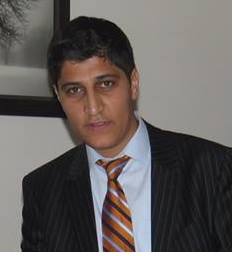
By Sarkawt Shamsulddin:
At the beginning of Crimea Crisis some anti-Russia political analysts questioned Putin’s sanity over the Ukraine invasion. Well, if you study the situation deeper, you will find out that he knows what he is doing. Putin is aware of one single fact, which is that Europe is in need of Russia more than ever. Economy-wise, European involvement in Russia is much more strategic than in the Ukraine. According to a BBC report, Europe’s trade deals with Russia are worth about $400 billion annually and US trade deals about $30-35 billion. It is not just energy, but also military equipment, agricultural products and financial ties; yet the energy sector is the most strategic. According to the US Energy Information Administration, 50% of Russia’s federal budget is dependent on oil and natural gas exports. Therefore to harm Russia is to put sanctions on its energy sector, but the big question is whether Europe is ready for such a move.
In the meantime, the West, especially Europe, doesn’t have other reliable sources to substitute Russia’s energy exports. One of the alternatives, which is unlikely to materialize, is Iran’s energy sector, even though the recent diplomatic talks between Iran and the West were fruitful enough to loosen the sanctions on Iran. The energy sector is like a double-edged sword, with the buyers and sellers both at risk at the same time. So far, sanction on Russia’s energy sector is not one of the options, but how can Putin be stopped? Russia can’t be compared to either Iraq or Iran. It has a nuclear weapon, and is one of the world’s superpowers. Moreover, Russia has a veto privilege in the UN Security Council. Simply put, it is too big to fight.
When Saddam invaded Kuwait in 1991, the international community reacted and defeated him within a few hours. In the case of Iran, the West found alternatives to Iranian oil and natural gas through an increased oil exports from Iraq, Saudi Arabia and Russia. Consequently, Iraq was defeated and Iran was isolated. It is true that those scenarios can’t be repeated against Russia, but what can be done is to find other sources of energy for Europe. However, Putin has likely already thought about this and therefore he found other buyers for Russia’s energy in Asia.
The West, especially Europe, should look for a long-term solution. Central Asia’s energy sector can be developed better, but the most effective and possibly the fastest way to supply natural gas to Europe is from the Middle East. Iraq, especially the Kurdistan Region, has a huge amount of natural gas reserves that have still not been developed due to Iraq’s failure to seize the opportunity of today’s market demand for natural gas. Iraq’s waste of natural gas on a daily basis amounts to millions of dollars. The hope is the Kurdistan Region. Despite its dispute with Baghdad, the region has built a new pipeline to transport oil from its newly developed field to Turkey. Officials at the Kurdistan Ministry of Natural Resources declared a new plan for the region’s natural gas exports: the building of a new pipeline to transport natural gas by the end of 2014. The importance of this for Europe is that Kurdistan can never use energy against the West, due to its fragile position which puts it in need of Western protection. According to the American Energy Institute’s initial estimate, the Kurdistan Region’s natural gas reserves amount to three trillion cubic meters that have been explored so far, and other parts of Iraq have more than that. However, Russia would still be important as it has the third largest gas natural gas reserves in the world: 48 trillion cubic meters.
The only issue with Kurdistan and Iraq’s energy sector is the internal dispute between the two governments over the oil and natural gas revenue. The Kurdistan Region seeks more sovereignty over the energy sector. The European countries may play a mediator role between the two governments to open the door for more investment in the energy sector and help both sides resolve their problems. The United States is directly involved in the Baghdad-Erbil talks; Brett McGurk’s recent intensive meetings with Iraqi officials produced a temporary solution which resulted in convincing the Kurdistan Regional Government (KRG) to export 100,000 bpd through the Iraqi pipeline. For the same purpose, US Vice President, Joe Biden, made a phone call to the Kurdistan Region’s president, Masoud Barzani, and asked him to resume oil exports through the Baghdad pipeline temporarily until both sides, Erbil and Baghdad, reach an agreement.
The question is: how might the Kurdistan Region benefit from the Crimea Crisis? In international crises there are winners and losers; in this case Kurdistan can be a winner because of its energy, and especially natural gas, reserves. This will depend on Kurdish diplomatic efforts with Europe and United States to shift the paradigm from ‘putting pressure on the KRG’ to negotiating with it. This is an historic opportunity for the Kurdistan Region to become the favorite ‘one’ of the West rather than a vulnerable ‘friend.’
Sarkawt Shamsulddin: Graduate Student at Virginia Tech University, School of Public and International Affairs, majoring in Governance and Global Security. Kurdistan Tribune Editorial Staff member.
.jpg)


